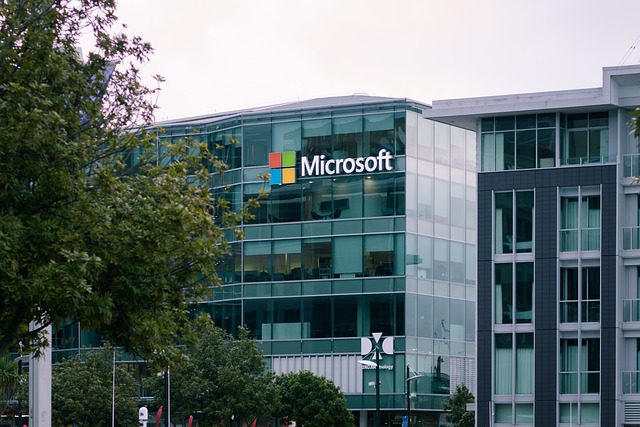Microsoft Build 2025: Embracing AI Innovations and Empowering Developers
Microsoft has unveils 50+ AI tools, agentic web vision, and revolutionary developer platforms transforming how applications are built and deployed. This is a new change for the future and Microsoft, get to know more In this article.
When we are talking about the new dawn of the AI era, Microsoft , build 2025 was held in Seattle from May 19-22, it marked a pivotal moment in the evolution of artificial intelligence and developer tools.
In the Opening speech the CEO of Microsoft Satya Nadella’s said “we’ve entered the era of AI agents, and Microsoft is leading the charge toward building what the company calls the open agentic web.”
Which means this isn’t just any AI builds any more it’s a new latest innovation for easy life for mankind’s.
This year’s conference wasn’t just about incremental improvements to existing tools—it represented a fundamental shift in how developers will create, deploy, and interact with AI-powered applications. With over 50 new AI tools and platform updates announced, Microsoft is positioning itself as the primary enabler of the next generation of intelligent applications.
Microsoft’s Vision for the Open Agentic Web
At the heart of Microsoft’s Build 2025 announcements is the concept of the agentic web—a vision where AI agents function independently across platforms and services, collaborating seamlessly to accomplish complex tasks. This represents a paradigm shift from traditional application development to a world where intelligent agents can reason, remember, and act autonomously.
Satya Nadella emphasized that this transformation extends beyond technology to fundamentally change how businesses operate and how developers create solutions. The agentic web promises to democratize AI development while providing unprecedented capabilities for automation and intelligent decision-making.

Key Components of the Agentic Web
Microsoft’s agentic web vision encompasses several critical components:
- Autonomous Decision Making: AI agents that can make complex decisions without human intervention
- Cross-Platform Integration: Seamless operation across Windows, Azure, GitHub, and Microsoft 365
- Intelligent Collaboration: Agents that work together to accomplish multi-step tasks
- Contextual Understanding: Deep comprehension of user intent and business processes
Revolutionary AI Agent Capabilities Across Microsoft’s Ecosystem
Microsoft announced significant AI agent updates across its entire technology stack, demonstrating the company’s commitment to making AI agents a central part of every product and service.
Windows 11 and AI Agent Integration
Windows 11 receives substantial AI enhancements that transform the operating system into an intelligent platform capable of supporting complex AI workflows. Key improvements include:
- DeepSeek R1 Model Integration: Advanced reasoning capabilities built directly into Windows 11 Copilot+ PCs
- Enhanced AI Performance: Optimized processing for local AI models and cloud-based services
- Improved Developer Experience: New tools and APIs for building AI-powered Windows applications
- Seamless Cloud Integration: Direct connectivity to Azure AI services from the desktop
The integration of DeepSeek R1 models represents a significant advancement in on-device AI processing, enabling Windows 11 to perform complex reasoning tasks without requiring constant cloud connectivity.
GitHub Copilot’s Evolution into an AI Agent Platform
GitHub Copilot has undergone a dramatic transformation from a code completion tool to a comprehensive AI development platform. The latest updates include:
- Multi-Agent Orchestration: Copilot can now coordinate multiple AI agents to handle complex development tasks
- Contextual Code Understanding: Enhanced ability to understand entire project contexts and dependencies
- Automated Testing and Debugging: AI agents that can write tests, identify bugs, and suggest fixes
- Natural Language Programming: Developers can describe functionality in plain English and receive complete implementations
The new Copilot Workspace feature allows developers to work with AI agents in a collaborative environment where human creativity combines with AI efficiency to accelerate development cycles significantly.
Azure AI Platform: The Foundation for Enterprise AI Agents
Microsoft’s Azure AI platform received substantial upgrades designed to support enterprise-scale AI agent deployment:
- Azure AI Foundry: Comprehensive platform for building, training, and deploying AI models at scale
- Model-as-a-Service Expansion: Access to leading AI models including GPT-4, Claude, and open-source alternatives
- Advanced Safety Features: Built-in content filtering, bias detection, and ethical AI guidelines
- Enterprise Integration: Seamless connectivity with existing business systems and workflows
The Azure AI Foundry represents Microsoft’s most significant investment in AI infrastructure, providing developers with the tools needed to create sophisticated AI agents that can operate in complex enterprise environments.

Copilot Studio: Democratizing AI Agent Development
One of the most significant announcements at Build 2025 was the introduction of Copilot Studio, a comprehensive platform designed to democratize AI agent development across organizations of all sizes.
Low-Code/No-Code AI Agent Creation
Copilot Studio enables users without extensive programming experience to create sophisticated AI agents through:
- Visual Agent Builder: Drag-and-drop interface for designing AI agent workflows
- Pre-built Templates: Industry-specific templates for common use cases
- Natural Language Configuration: Describe agent behavior in plain English
- Automated Testing: Built-in testing tools to validate agent performance
This approach makes AI agent development accessible to business analysts, domain experts, and citizen developers who understand business processes but may lack deep technical expertise.
Enterprise-Grade Security and Governance
Copilot Studio includes comprehensive security and governance features essential for enterprise deployment:
- Role-Based Access Control: Granular permissions for agent creation and deployment
- Audit Logging: Complete tracking of agent actions and decisions
- Compliance Frameworks: Built-in support for industry regulations and standards
- Data Protection: Advanced encryption and privacy controls for sensitive information
These features ensure that AI agents can operate safely within existing corporate governance frameworks while maintaining the flexibility needed for innovation.
Advanced Developer Tools and Programming Enhancements
Microsoft announced significant improvements to its developer tools ecosystem, focusing on AI-enhanced programming experiences that accelerate development while maintaining code quality.
Visual Studio and AI-Powered Development
Visual Studio receives substantial AI enhancements that transform the integrated development environment:
- Intelligent Code Generation: AI that can write entire functions and classes based on comments or specifications
- Automated Refactoring: Smart suggestions for improving code structure and performance
- Bug Prediction and Prevention: AI that identifies potential issues before they occur
- Performance Optimization: Automatic suggestions for improving application performance
The integration of AI into Visual Studio represents a fundamental shift in how developers interact with their development environment, moving from manual coding to AI-assisted development.
GitHub Advanced Security and AI Integration
GitHub’s security capabilities receive significant AI enhancements:
- Vulnerability Detection: AI-powered analysis of code for security vulnerabilities
- Automated Remediation: Suggested fixes for identified security issues
- Compliance Monitoring: Continuous monitoring for regulatory compliance
- Supply Chain Security: AI analysis of dependencies and third-party components
These features help developers build more secure applications while reducing the manual effort required for security reviews and compliance checks.
Cross-Platform Integration and Ecosystem Connectivity
Microsoft’s Build 2025 announcements emphasized seamless integration across the company’s entire technology ecosystem, enabling developers to create solutions that work seamlessly across platforms and services.
Microsoft 365 and AI Agent Integration
Microsoft 365 applications receive significant AI agent capabilities:
- Intelligent Document Processing: AI agents that can analyze, summarize, and act on document content
- Automated Workflow Orchestration: Agents that coordinate tasks across multiple applications
- Smart Meeting Assistance: AI that can schedule, prepare, and follow up on meetings
- Content Creation and Curation: Automated generation of presentations, reports, and communications
These capabilities transform Microsoft 365 from a productivity suite into an intelligent work platform that can handle routine tasks automatically.
Teams and Collaborative AI Agents
Microsoft Teams becomes a platform for collaborative AI agents:
- Meeting Intelligence: AI that can participate in meetings, take notes, and follow up on action items
- Project Coordination: Agents that track project progress and coordinate team activities
- Knowledge Management: AI that can access and synthesize information from across the organization
- Customer Service Integration: Agents that can handle customer inquiries and support requests
This integration makes AI agents active participants in team collaboration rather than just tools used by individual team members.
Industry-Specific AI Solutions and Vertical Integration
Microsoft announced several industry-specific AI solutions that demonstrate the practical applications of AI agents across different sectors.
Healthcare AI Agents
Healthcare receives specialized AI agent capabilities:
- Clinical Decision Support: AI agents that can analyze patient data and suggest treatment options
- Administrative Automation: Agents that handle scheduling, billing, and insurance processing
- Research Assistance: AI that can analyze medical literature and research data
- Patient Engagement: Agents that can communicate with patients and provide health information
These healthcare AI agents are designed to work within existing medical workflows while maintaining strict compliance with healthcare regulations and privacy requirements.
Financial Services AI Integration
Financial services receive tailored AI agent solutions:
- Risk Assessment: AI agents that can analyze financial risk and make recommendations
- Fraud Detection: Automated systems that identify suspicious transactions and activities
- Customer Service: AI agents that can handle routine customer inquiries and transactions
- Regulatory Compliance: Agents that monitor and ensure compliance with financial regulations
The financial services AI agents include sophisticated security and audit capabilities required for handling sensitive financial data.
Manufacturing and Supply Chain AI
Manufacturing industries receive specialized AI agent capabilities:
- Predictive Maintenance: AI agents that can predict equipment failures and schedule maintenance
- Quality Control: Automated systems that monitor product quality and identify defects
- Supply Chain Optimization: Agents that optimize inventory levels and logistics
- Production Planning: AI that can optimize manufacturing schedules and resource allocation
These manufacturing AI agents integrate with existing industrial systems and IoT devices to provide comprehensive operational intelligence.
Educational Impact and Developer Skill Development
Microsoft announced significant investments in AI education and developer skill development, recognizing that the success of AI agents depends on widespread developer adoption and expertise.
AI Skills Development Programs
Microsoft launched comprehensive AI education initiatives:
- AI Fundamentals Certification: Entry-level certification for understanding AI concepts and applications
- Advanced AI Development: Specialized training for building complex AI agents and systems
- Industry-Specific AI Training: Tailored programs for different industries and use cases
- Hands-On Workshops: Practical training sessions using real-world scenarios and projects
These programs are designed to help developers transition from traditional programming to AI-enhanced development practices.
University and Academic Partnerships
Microsoft expanded its academic partnerships to include AI agent development:
- Curriculum Integration: AI agent development courses integrated into computer science programs
- Research Collaboration: Joint research projects exploring advanced AI agent capabilities
- Student Competition: Hackathons and competitions focused on AI agent development
- Faculty Development: Training programs for educators teaching AI development
These partnerships ensure that the next generation of developers will have the skills needed to build and deploy AI agents effectively.
Global Accessibility and Inclusion Initiatives
Microsoft emphasized its commitment to making AI agent development accessible to developers worldwide, regardless of their location or technical background.
Multilingual AI Agent Support
AI agents can now operate in multiple languages and cultural contexts:
- Natural Language Processing: Support for over 100 languages in AI agent interactions
- Cultural Adaptation: AI agents that understand cultural context and business practices
- Localization Tools: Automated translation and localization of AI agent interfaces
- Regional Compliance: Built-in support for local regulations and requirements
This multilingual support enables global deployment of AI agents while maintaining local relevance and compliance.
Accessibility Features for AI Development
Microsoft announced enhanced accessibility features for AI development:
- Voice-Driven Development: Ability to create and configure AI agents using voice commands
- Visual Accessibility: Support for screen readers and other assistive technologies
- Simplified Interfaces: Streamlined user interfaces designed for accessibility
- Inclusive Design: AI agents that are designed to work with diverse user needs and abilities
These accessibility features ensure that AI development tools are usable by developers with disabilities and support the creation of inclusive AI applications.
Economic Impact and Market Transformation
Microsoft’s Build 2025 announcements have significant implications for the global technology economy and market dynamics.
Job Market Evolution
The introduction of AI agents will transform the technology job market:
- New Role Categories: AI agent developers, AI prompt engineers, and AI system architects
- Skill Requirements: Emphasis on AI literacy, prompt engineering, and system integration
- Traditional Role Evolution: Existing roles adapted to work with AI agents and automated systems
- Training and Reskilling: Massive investment in retraining programs for existing developers
This transformation requires proactive planning from both individuals and organizations to adapt to the changing skill requirements.
Economic Opportunities
AI agents create new economic opportunities:
- Startup Ecosystems: New companies building specialized AI agent solutions
- Service Industries: Consulting and implementation services for AI agent deployment
- Platform Economics: Marketplaces for AI agents and related services
- Global Competition: International competition for AI agent development talent and capabilities
The economic impact extends beyond the technology sector to influence virtually every industry that adopts AI agent technologies.
Future Roadmap and Strategic Direction
Microsoft outlined its strategic roadmap for AI agent development, providing insight into the company’s long-term vision for artificial intelligence.
Next-Generation AI Capabilities
Microsoft is investing in advanced AI capabilities that will power future generations of AI agents:
- Multimodal AI: Agents that can process text, images, audio, and video simultaneously
- Reasoning and Logic: Enhanced logical reasoning capabilities for complex problem-solving
- Learning and Adaptation: AI agents that can learn from experience and improve over time
- Emotional Intelligence: Understanding and responding to human emotions and social cues
These advanced capabilities will enable AI agents to handle increasingly complex and nuanced tasks.
Platform Evolution
Microsoft’s platform strategy includes continuous evolution of AI agent capabilities:
- Performance Optimization: Ongoing improvements in AI agent speed and efficiency
- Cost Reduction: Making AI agent development and deployment more affordable
- Scalability Enhancement: Supporting larger and more complex AI agent deployments
- Integration Expansion: Connecting AI agents with more platforms and services
This evolution ensures that Microsoft’s AI agent platform remains competitive and continues to meet evolving customer needs.
Conclusion: Transforming the Future of Development
Microsoft Build 2025 represents a watershed moment in the evolution of software development and artificial intelligence. The company’s vision of an open agentic web, powered by intelligent AI agents, promises to transform how applications are built, deployed, and used.
The comprehensive nature of Microsoft’s announcements—spanning Windows 11, GitHub Copilot, Azure AI, and Microsoft 365—demonstrates the company’s commitment to making AI agents a central part of every aspect of computing. By providing developers with powerful tools and platforms for building AI agents, Microsoft is enabling the creation of a new generation of intelligent applications that can reason, learn, and act autonomously.
The success of this vision depends on several factors: developer adoption, enterprise acceptance, and the ability to deliver on the promised capabilities. Early indicators suggest that Microsoft has created a compelling platform that addresses real developer needs while providing the flexibility and power needed for complex AI applications.
For developers, Microsoft Build 2025 offers unprecedented opportunities to create intelligent applications that were previously impossible. The democratization of AI agent development through tools like Copilot Studio means that organizations of all sizes can benefit from AI automation and intelligence.
The implications extend beyond technology to influence business processes, job markets, and economic structures. As AI agents become more capable and widespread, they will fundamentally change how work is performed and how value is created in the digital economy.
Looking ahead, Microsoft’s investment in AI agent technology positions the company as a leader in the next phase of computing evolution. The open agentic web vision provides a roadmap for how AI will integrate into every aspect of digital life, from personal productivity to enterprise operations.
The journey toward widespread AI agent adoption will require continued innovation, education, and adaptation from both technology providers and users. Microsoft’s Build 2025 announcements provide a strong foundation for this transformation, offering the tools and platforms needed to build the intelligent applications of tomorrow.
For comprehensive coverage of related technology developments, including NVIDIA’s strategic AI infrastructure investments in Taiwan and Huawei’s revolutionary HarmonyOS laptop launch, continue following AFChargeTech’s in-depth analysis of the evolving technology landscape.
Stay updated with the latest developments in AI development and technology innovation by following AFChargeTech for comprehensive coverage of emerging tech trends and their impact on the future of computing.




Čtu hodně blogů o sázení, ale tento je nejpřehledněji.
Es scheint der perfekte Zeitpunkt, um Pläne für die Zukunft zu machen, und es wäre Zeit, glücklich zu sein. Ich habe deinen Beitrag gelesen und möchte dir einige
Tipps zu Weex Exchange geben. Vielleicht kannst du im nächsten Artikel mehr über Weex Exchange Crypto schreiben. Ich würde gerne mehr darüber lesen!
Es scheint der perfekte Zeitpunkt, um Pläne für die Zukunft zu machen, und es wäre Zeit, glücklich zu sein. Ich habe deinen Beitrag gelesen und möchte dir einige
Tipps zu Weex Exchange geben. Vielleicht kannst du im nächsten Artikel mehr über Weex Exchange Crypto schreiben. Ich würde gerne mehr darüber lesen!